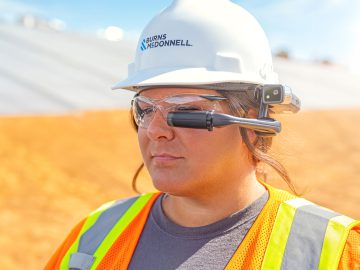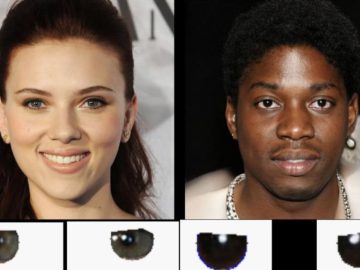Although Alzheimer’s is the most common cause of dementia—a catchall term for cognitive deficits that impact daily living, like the loss of memory or language—it’s not the only one. Because multiple causes of dementia can happen simultaneously, reaching a definitive diagnosis isn’t easy or quick. And often by then, it’s too late to intervene.
Boston University’s Vijaya B. Kolachalama, an expert on using computers to aid medical diagnoses, has created an artificial intelligence tool that can determine what’s causing a person’s cognitive decline, and assist doctors in more efficiently zeroing in on an accurate diagnosis.
Developed with a team of BU researchers and outside collaborators, it accurately identifies specific causes of dementia using commonly collected patient information—like medical history, medication use, demographic data, and neurological and neuropsychological exam scores—and neuroimaging data, such as magnetic resonance imaging (MRI) scans. For each case, all the available information is entered into the AI-powered software, which then generates a prediction of the type of dementia a person has and a confidence score. The findings are published in Nature Medicine.
“We believe AI can help by identifying these disorders early and assisting doctors in managing their patients more effectively, preventing the diseases from getting worse,” says Kolachalama, a BU associate professor of medicine and computer science, and corresponding author on the paper.
The platform can diagnose 10 different types of dementia, including vascular dementia and frontotemporal dementia, even if they occur together. As new drugs gain approval for treating Alzheimer’s—such as Kisunla, an injection that the US Food & Drug Administration recently approved for people with mild cognitive impairment—Kolachalama is hopeful that his team’s AI tool can help determine who can benefit from different treatments or participate in clinical trials to help bring more drugs to market.
The algorithm was trained on data from more than 50,000 individuals from nine different datasets collected around the world. To test the software’s performance, the researchers gave neurologists working alone and neurologists using the computer model 100 cases to evaluate. They then compared the results of doctors working solo versus those using the software—and found the software boosted the doctors’ accuracy by 26 percent.
Kolachalama collaborates with neurologists and radiologists from around the world who all have access to different types of patient information. For that reason, the software works even with limited information. For example, MRI machines are not as prevalent in under-resourced hospitals in low-income countries, so having a tool that can use any type of available patient data is key for expanding the technology to areas that need it most.
“The ability to generate a diagnosis with routine clinical data is becoming increasingly important given the significant challenges in accessing gold-standard testing, not only in remote and economically developing regions, but [also] in urban healthcare centers,” says Kolachalama.
He points out that there is a shortage of neurology experts around the world, and with the number of neurology patients growing, this mismatch is putting a big strain on healthcare systems. Having a software program that can assist in diagnosing could help lift the burden that’s falling on doctors with limited time and resources, Kolachalama says. The next step for the AI tool is bringing it to hospitals and doctors’ offices for field testing—a goal that Kolachalama and his team are actively working toward.
This project was supported by the National Institute on Aging’s Artificial Intelligence and Technology Collaboratories, the American Heart Association, and the National Institutes of Health.
Republishers are kindly reminded to uphold journalistic integrity by providing proper crediting, including a direct link back to the original source URL here.
Method of Research
Computational simulation/modeling
Subject of Research
People
Article Title
AI-based differential diagnosis of dementia etiologies on multimodal data
Article Publication Date
4-Jul-2024
Disclaimer: AAAS and EurekAlert! are not responsible for the accuracy of news releases posted to EurekAlert! by contributing institutions or for the use of any information through the EurekAlert system.



